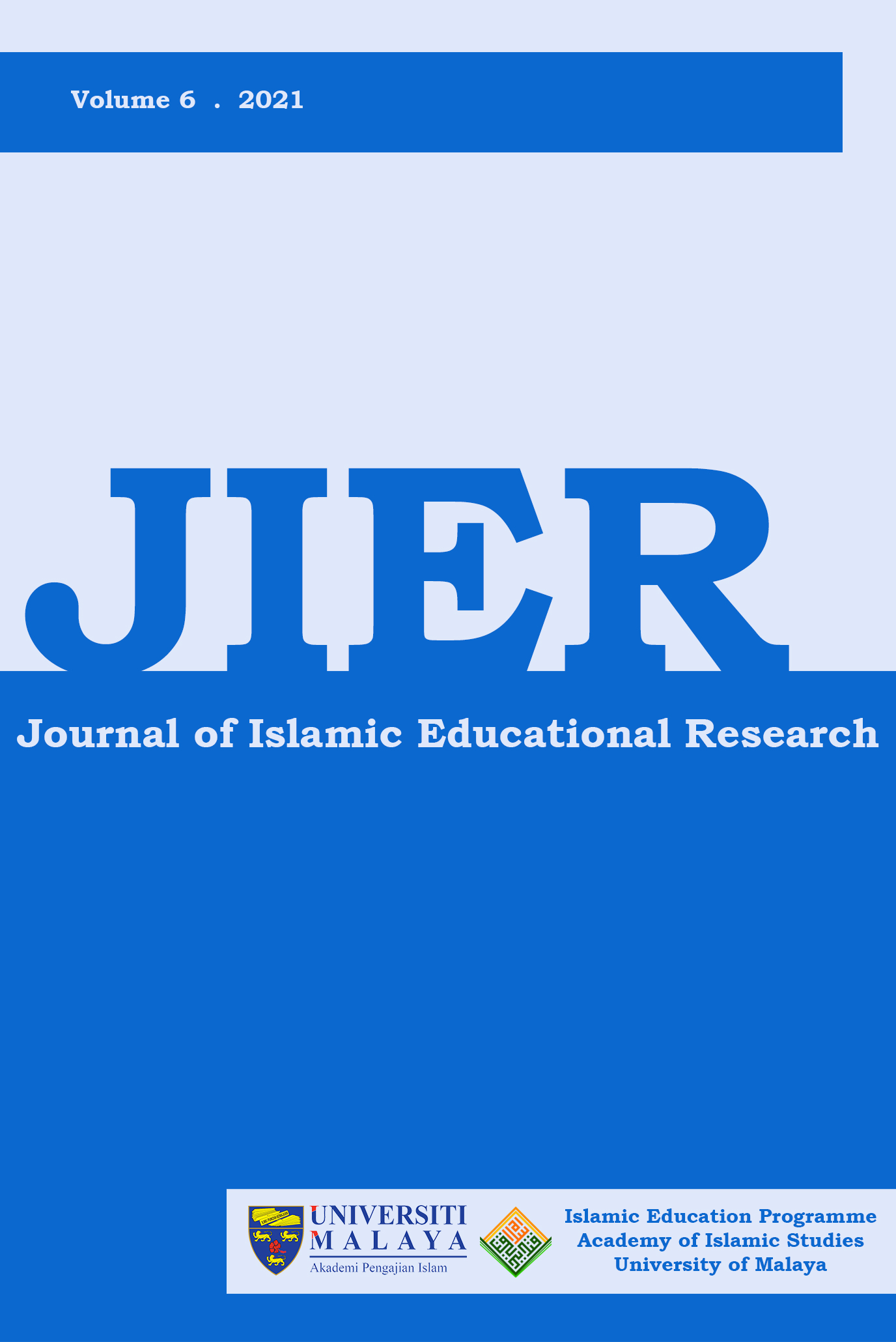PERANAN GURU DALAM PELAKSANAAN E-PEMBELAJARAN PENDIDIKAN ISLAM MENURUT PERSPEKTIF AL-GHAZALI
THE ROLE OF TEACHERS IN THE IMPLEMENTATION OF E-LEARNING IN ISLAMIC EDUCATION ACCORDING TO AL-GHAZALI’S PERSPECTIVE
DOI:
https://doi.org/10.22452/jier.vol6no2021.4Keywords:
Teacher’s Role, e-Learning, Islamic Education, al-GhazaliAbstract
In the current era of globalization, the role of teachers is becoming increasingly complex and challenging. The charisma of a teacher is resulting to a great impact towards the development of the integrity of his students. The role of Islamic Education teachers in imparting knowledge through Islamic Education e-learning needs to be refined as the medium of knowledge delivery at this time is different than before. The implementation of online teaching and learning for the subject of Islamic Education provides impact and challenges to students and teachers, especially from the aspect of character building. Analysis of previous studies shows that the e-learning medium causes teachers to only act as the sender of information. Whereas in Islam, teachers do not just transfer knowledge to students but also act as Murabbi, Mu’allim, Muaddib, Mudarris and Mursyid. The purpose of this literature review is to describe the relevance of al-Ghazali's theory in studying the role of teachers through the implementation of Islamic Education e-learning. This article was conducted through a literature review. According to al-Ghazali, teachers need to consider students as their own children in imparting knowledge. Hence the teachers need to play a role as muaddib, not just act as a conveyer or merely transfer knowledge to students through the medium of e-learning of Islamic Education as well as parents in shaping the children’s character and personality as well.
Downloads
Downloads
Published
How to Cite
Issue
Section
License
The published manuscript shall be a copyright of the Islamic Education Programme, Academy of Islamic Studies, University of Malaya, Kuala Lumpur, Malaysia. The published manuscript would not represent the stand or opinion of the Advisory Board, Editorial Board, Co-Editorial Board and the Management Team of Journal of Islamic Educational Research (JIER), or the Islamic Education Programme, Academy of Islamic Studies, University of Malaya.
Note: This is an open access journal which means that all content is freely available without charge to the user or his/her institution. Users are allowed to read, download, copy, distribute, print, search, or link to the full texts of the articles in this journal without asking prior permission from the publisher or the author. This is in accordance with the BOAI definition of open access.






